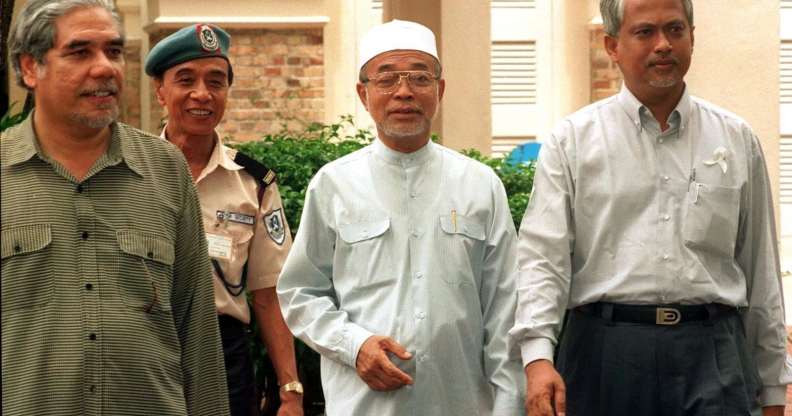Malaysia: Political pressure may prevent LGBT protection in new anti-discrimination law

Mustafa Ali (R), Fadzil Noor (C) and Mahfuz Omar (UPALI ATURUGIRI/AFP/Getty)
A new draft act proposed to combat discrimination in Malaysia risks losing protections for the LGBT community after political pressure, a policy formation body has warned.
A current clause in the draft National Harmony and Reconciliation Bill 2014, which forms part of the National Harmony Act (NHA), states that the government and all persons shall not unfairly discriminate against any person on the grounds of gender, including sexual orientation and identity.
Yet Lim Chee Wee, deputy chairman of the policy formation group the National Unity Consultative Council (NUCC), this week warned a press conference that “political pressure” is likely to result in the removal of the sub-clause on orientation and identity.
“Some segments in the Malaysian society want to demonise the [LGBT] community,” Lim added.
If the clause is dropped, the bill will not protect against discrimination on the basis of sexuality or gender identity. Lim suggested that judges might be able to extend the definition of gender in individual cases to include sexual orientation or gender identity, but said that the NUCC would prefer this extended definition to be made clear.
The National Harmony Act (NHA) is intended to replace the Sedition Act 1948, which was introduced by the British government to curb dissent and prevent open opposition to colonial rule, and has since been used to restrict freedom of speech.
The new act hopes to help alleviate some of the racial tensions and disparities between indigenous (primarily Malay) and non-indigenous citizens, enshrined in the country’s ‘Social Contract’ and protected by the Sedition Act.
Religious tensions, particularly between Muslims and Christians, are also rife, and the NHA has come under fire from Muslim groups, who claim it has been drafted by “Islamophobes”.
The LGBT community is not explicitly banned by law in Malaysia, but sodomy still carries a prison sentence.

